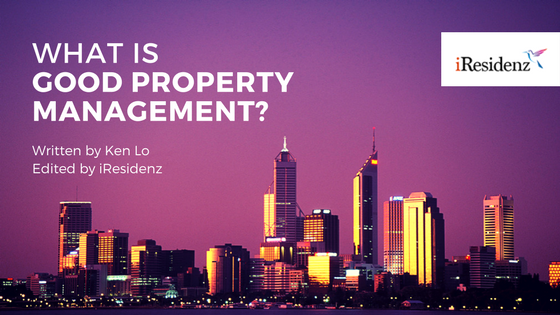
What is the definition of “good”?
More often than not, what is considered “good” for some, is “not good” for others.
I had a friend living in the same condominium, where I served as a Chairman, and every time she saw me she would complain that the cleanliness of the common area was not good while a majority of the other residents had no such complaints. I later discovered that she was a perfectionist.
If you were to ask ten condominium residents what they consider good property management, in every ten responses, you may get something like:
“Good property management is when…
…you have nothing to complain about; only praise.”
…there is no corruption.”
…there is no in-fighting with the Management Corporation council.”
…the manager is not hopeless!”
In the Strata Titles Act 1985 (Act 318), Section 43 (1) (a) spells out the duties & powers of the Management (either the Joint Management Body, Management Corporation Council, the Developer or the Developer’s appointed Property Manager) as:
“to manage and properly maintain the common property and keep it in a state of good and serviceable repair”
The definition of “a state of good” is very subjective, unless there is a minimum standard established and agreed by the majority, e.g. how clean is clean.
What is “property management”?
I spoke to an expert who has been a Property Manager for over thirty years and he told me that property management is, essentially, about people management. Things do not cry, but people cry if common property is not kept in a state of good and serviceable repair, since it lowers their standard of living.
Expectations of good service have to be managed. When a complaint is lodged and there is no response from the Management for weeks, is that considered good management? How many condominiums have Standard Operating Procedures (SOPs) to respond to complaints?
A resident once lamented that his complaints had not been dealt with. I asked him if he had filled in the complaint form and he said yes. Then I asked him if he had a copy of the form acknowledged receipt by the management office. He said no. So I checked with the management office where his complaint form was and they told me that they didn’t receive it.
There are two possibilities:
- He did not lodge a written complaint.
- The form was lost for whatever reason.
Since he did not keep an acknowledged copy and the office has no record, he has to go through the complaint process again and is not a happy soul.
Good property management requires an SOP to be made known to all the residents and have a fail-safe system in place to capture residents’ complaints.
Since every condominium is unique, each management should establish their own SOP, especially for Security & Safety. If residents are not aware of the SOP, how will they know whether the security guards are doing their jobs? If you are a resident, ask your management for a copy of their SOP.
Ken Lo, B.Eng (Hon) UK, CFP, is the Chairman of the first Subsidiary Title Owners & Purchasers Association of Sabah (STOPS). He has been involved with property management in various capacities in Kuala Lumpur & Kota Kinabalu for more than 15 years.
